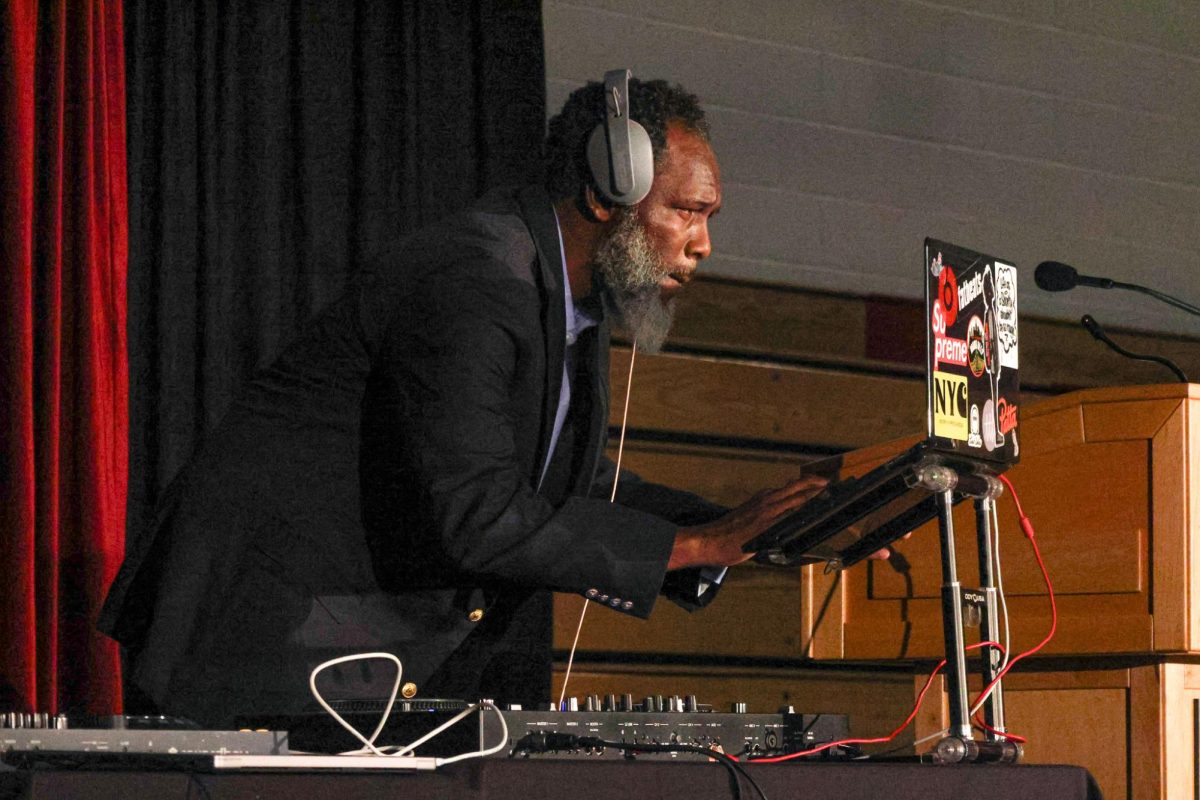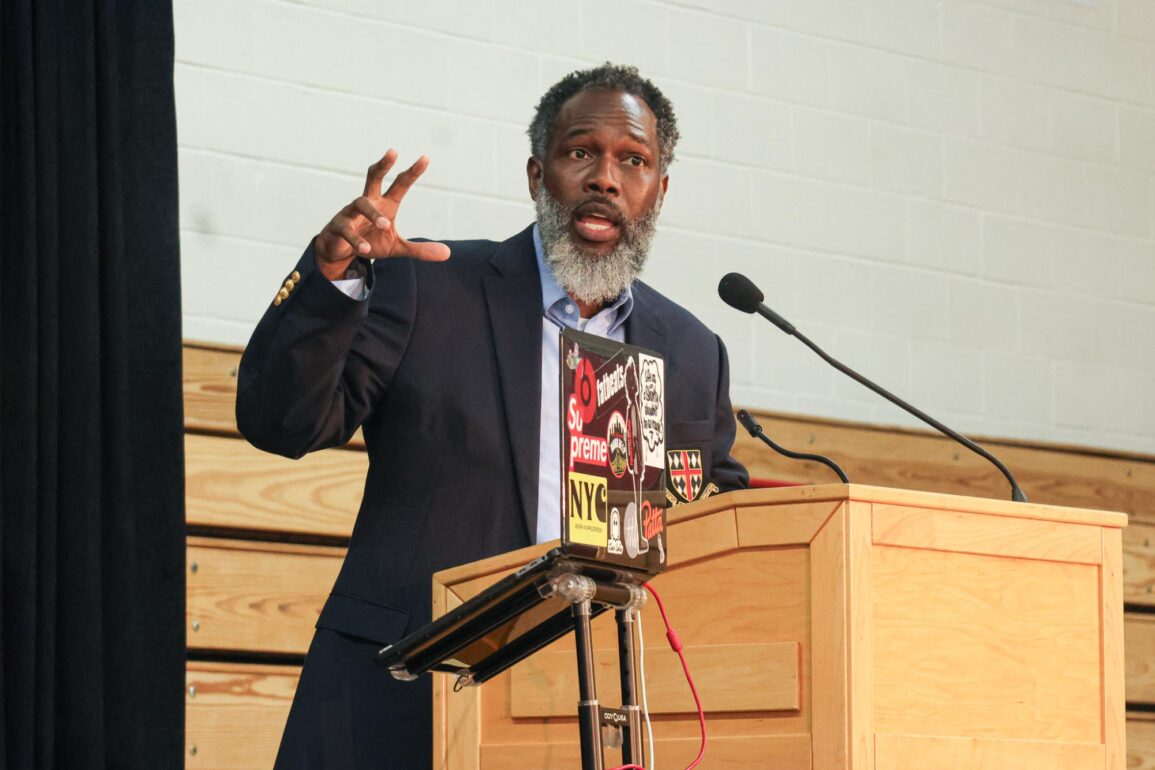DJ and professor of African American Studies at the City University of New York, Todd Craig, spoke to the school community in an all-school assembly in Taper Gym on Feb. 13. Craig explored the history of Hip-Hop, as well as sound, popular culture and other factors that contributed to the rise of the genre.
Craig presented his own mix of Hip-Hop songs at the beginning of the assembly, consisting of modern Hip-Hop songs, and older Hip-Hop tracks that those songs sampled from. Craig said he did this to show Hip-Hop’s evolution over the last 50 years, as well as the importance of samples in Hip-Hop culture.
“One great thing about Hip-Hop’s longevity is that is allows the culture to sample itself, so breaks from older songs can get turned into new musical landscapes,” Craig said.
According to Craig, Hip-Hop’s origin is a stylized version of rhythmic music sung and rapped by African-Americans in the Bronx district of New York. Craig said the role of DJs in creating and evolving Hip-Hop as a genre was massive and said that they were the genesis of Hip-Hop culture.
“The DJ is the cornerstone of Hip-Hop culture,” Craig said. “It’s the DJ that brought all of these elements together. Without the DJ, you don’t have emcees, you don’t have break dancers. The DJ was the first one to isolate a beat and bring it back multiple times. We wouldn’t have this culture at all without the DJ.”

Craig said Hip-Hop lends many inspiration from other genres of music, as DJ’s would sample beats, or breaks from other songs to create their own tracks. This led to sampling beats becoming an integral part of Hip-Hop.
“Hip-Hop DJ’s were always looking to find the cool sounding break in any sort of song,” Craig said. “They didn’t care what genre of music it was, as long as that heart of the song made the dancers move and got the emcee’s inspired, that was the part of the song that the DJ’s would manipulate. That’s why Hip-Hop becomes so interesting, because its taking pieces of all of these different genres to create its own unique sound.”
Director of Bookstore Operations Tina Cleveland said Craig’s presentation was very educational, and she was glad he engaged with the audience.
“I loved how he took us through the different genres of music and of sampling to give you guys a view of the conversation he was going to have,” Cleveland said. “I also loved how in tune he was when answering student questions. He was very knowledgeable.”
Cleveland, as an African-American woman, said this presentation was also great for highlighting her culture, especially during Black History Month.
“It just really makes me proud that we can share our music and our heritage with the world,” Cleveland said. “Most everyone in this community and abroad knows Hip-Hop, they know the artists of Hip-Hop, but for the school to bring it on campus and give students a taste of our history, I think it was very powerful.”
Brando Bowse ’26 said the assembly showed him how much Hip-Hop influences music production today. said that as a budding DJ, it was thought-provoking for him to hear this presentation.
“Even though I don’t listen to Hip-Hop, it was really interesting to see how a lot of the techniques I use in my own music stem from that genre,” Bowse said. “It was fascinating to hear the history of the methods producers use that define the music industry today.”
This post was originally published on this site be sure to check out more of their content.







